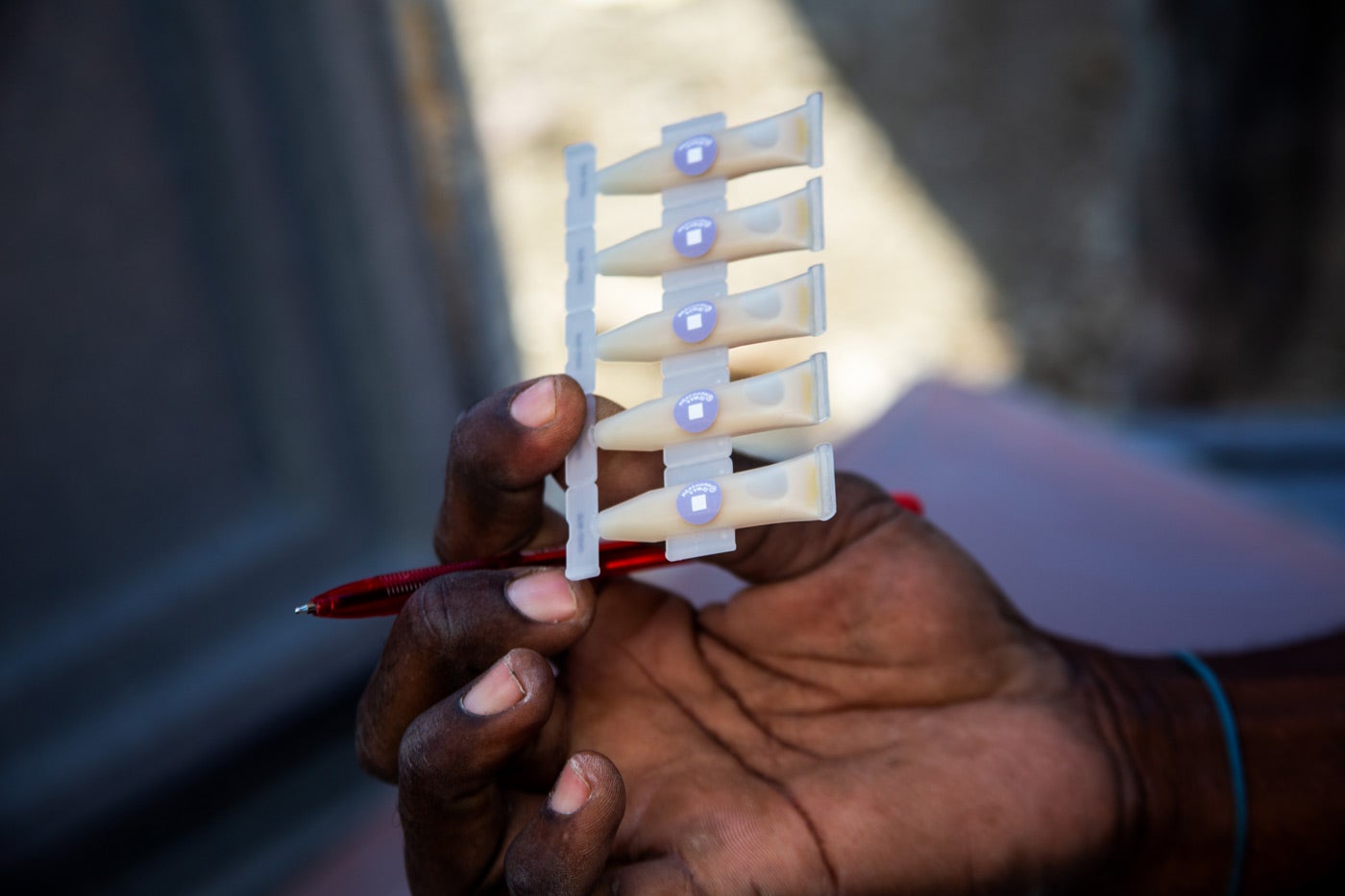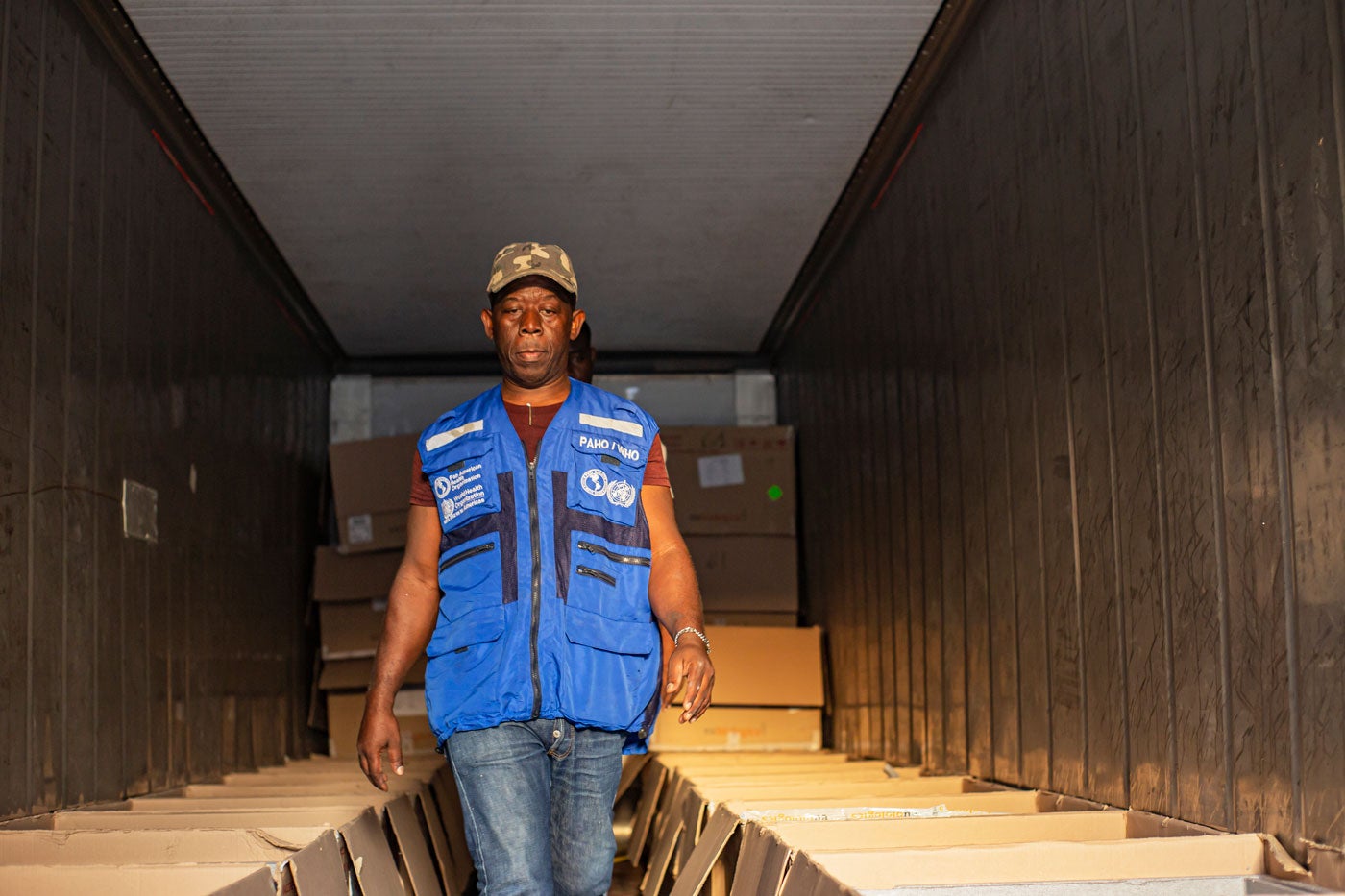
Port-au-Prince, December 12, 2022 (PAHO) – With the support of the Pan American Health Organization (PAHO), Haiti today received around 1.17 million doses of oral cholera vaccines as cases continue to rise in the country.
The vaccine (Euvichol) was provided by the International Coordinating Group on Vaccine Provision (IGC), which manages the global cholera vaccine stockpile, following a request by Haiti’s Ministry of Public Health and Population (MSPP, its acronym in French).
Haiti’s vaccination campaign is set to start in the next days, initially targeting populations over the age of one year in Cite Soleil, Delmas, Tabarre, Carrefour and Port-au-Prince in the Ouest Department and Mirebalais in the Centre Department – areas in which most of the cholera cases have been reported, to date.
“Haiti has experience in managing cholera, but the fragile security situation has slowed down response efforts, so the arrival of these vaccines is most welcome,” PAHO Director Carissa F. Etienne said. “PAHO has been working with Haiti since the resurgence of cholera and will continue to support the national authorities to quickly distribute vaccines, monitor cases and provide life-saving care.”
The World Health Organization (WHO) recommends the use of the oral vaccine in combination with other measures – particularly water, sanitation, and hygiene interventions – to prevent the spread of the water-borne disease.
PAHO is providing technical and financial assistance to the MSPP to implement the vaccination campaign, including training of health workers, guidance to identify priority communities and potential barriers, deployment of record management tools and risk communication and community engagement activities to encourage vaccine uptake.
“The arrival of oral vaccines in Haiti is a step in the right direction,” MSPP Director General Lauré Adrien said. “We are integrating this tool into our national strategy, which includes surveillance, water and sanitation interventions, social mobilization, and treatment.”
“We hope this first shipment will be followed by others so that the vaccine is available to all populations at risk in Haiti,” Adrien added. An additional batch of around 500,000 doses is expected to arrive in Haiti in the coming weeks.
Cholera has spread geographically within Haiti in the past weeks. As of today, the National Department of Epidemiology, Laboratories, and Research (DELR) reports 1,220 confirmed cases and over 280 deaths due to cholera in eight departments, with over 14,100 suspected cases spread across all 10 departments in the country.
“PAHO has been working closely with the MSPP to scale up critical operations to treat and prevent cholera,” said Maureen Birmingham, PAHO/WHO Representative in Haiti. “Vaccination is one additional strategy to help slow down transmission,” she added.
PAHO has so far provided over 49 tons of essential medical supplies to support Cholera Treatment Centers set up by national authorities and partners in the most affected areas. Materials include oral rehydration salts, Ringer’s Lactate solution and infusion sets, cholera beds, as well as non-medical supplies such as fuel to support operations and water, sanitation, and hygiene (WASH) supplies.
PAHO is also assisting the Government in setting up rapid response teams throughout the country to follow-up on alerts, raise awareness about preventive measures within communities, and address WASH issues.
About PAHO
The Pan American Health Organization (PAHO) is the specialized health agency for the Inter-American System and serves as the World Health Organization (WHO) Regional Office for the Americas. This year, PAHO celebrated its 120th anniversary working with countries throughout the region to improve and protect people's health.
About the ICG
The International Coordinating Group on vaccine provision (ICG) manages and coordinates the provision of emergency vaccine supplies and antibiotics to countries during major disease outbreaks. The group is composed of members of WHO, Médecins Sans Frontières, UNICEF, and the International Federation of the Red Cross and Red Crescent Societies.





